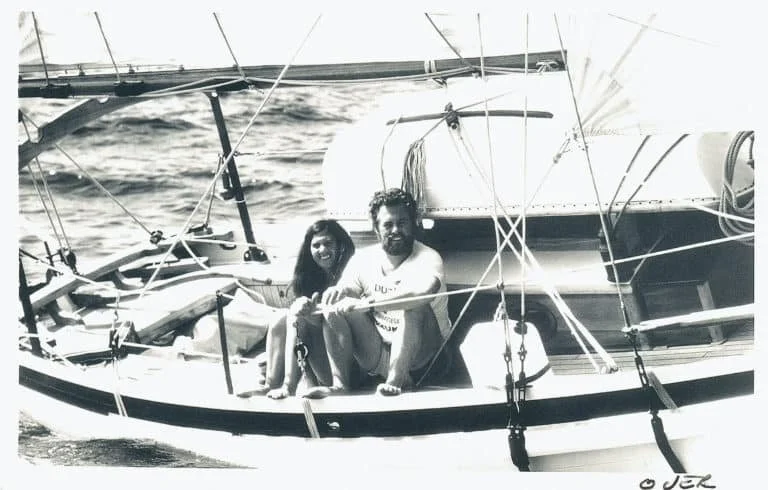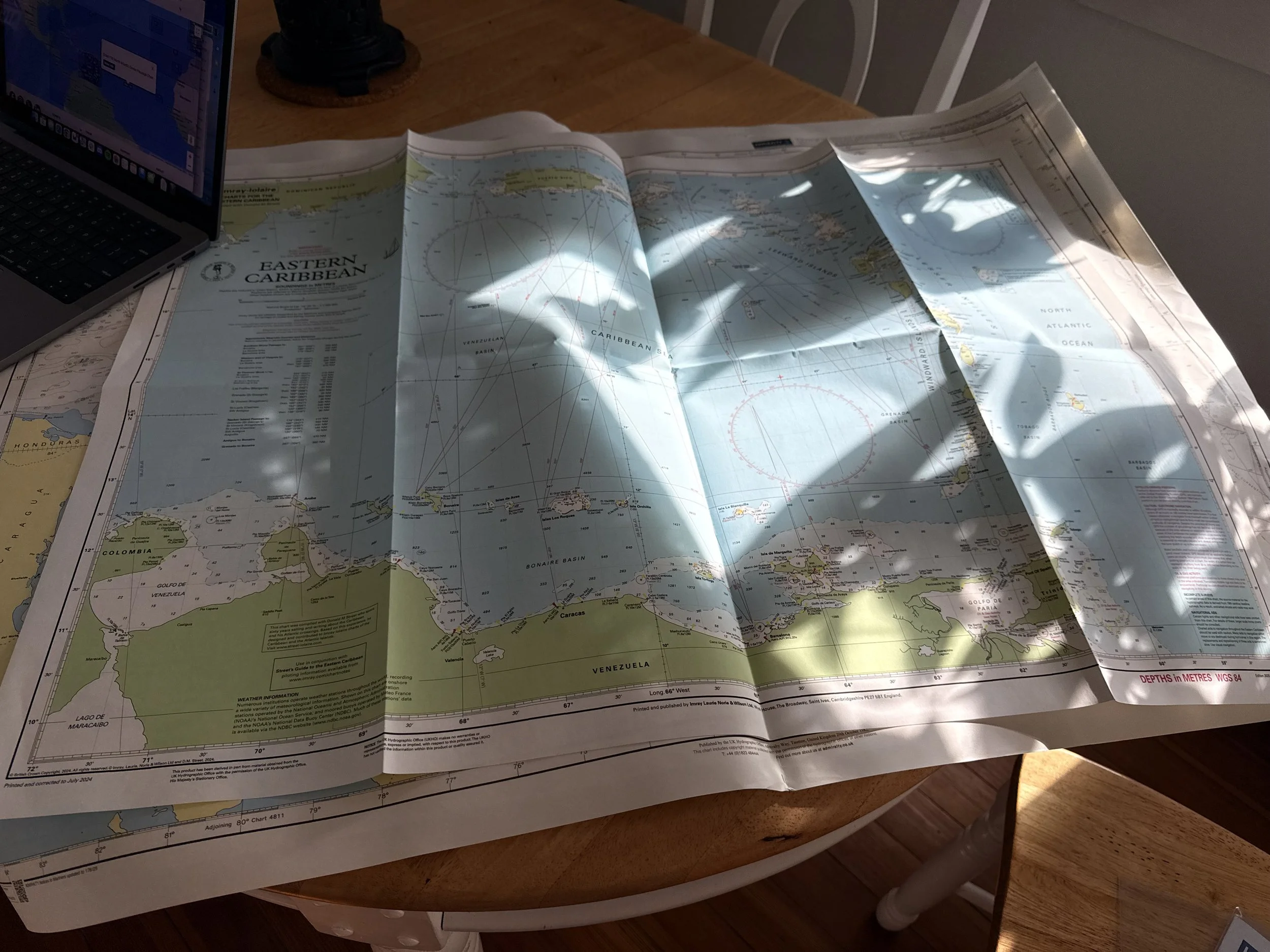Inspirations
If all goes well, we will own a new boat at some point in the coming months. This is not the post where we’ll talk much about that, other than to say that I traveled extensively up and down the southern coast of the United States last fall, and looked at a lot of potential boats. There were many I liked, more that I did not, and we put in an offer back in November for one.
Time will tell. One does not fall in love with a boat until closing day, and there were at least 3 we put on our final list - but more on this later.
Instead, I have been thinking a lot recently about this change in lifestyle we have ahead of us. We have been talking about, debating, and generally — I think — agreeing on the topics of why (why this, why now?) and how (in what way).
I’ve also been thinking a lot about values, especially in a world that seems to be changing ever more rapidly around us. Decisions informed by values tend to last, I’ve found.
In another life, one with board rooms and capital raises, I read the usual business nonsense books. I recall reading Ray Dalio’s Principles some years ago, and while this is not a moment to lionize billionaires, something he said stuck: “Having the basics, a good bed to sleep in, good relationships, good food – is most important, and those things don’t get much better when you have a lot of money or much worse when you have less. And the people one meets at the top aren’t necessarily more special than those one meets at the bottom or in between.”
But this is not a post about Ray Dalio.
Gail Sheehy was a journalist, before she wrote pop-psychology books for a living.
She worked for New York magazine, way back in its earliest days. She covered the presidential campaign of RFK, and chronicled Woodstock while there to keep her sister away from the amphetamines she had become addicted to, and then went on to write about the rise of meth in NYC in the 70s. She worked for Vanity Fair when Leo Lerman took over, during its 1980s resurrection, and she interviewed presidents and politicians throughout the twentieth century.
And, Sheehy wrote the self-help/pop-psych/Library of Congress named “influential book” Passages almost accidentally.
“Growth demands a temporary surrender of security. It may mean a giving up of familiar but limiting patterns, safe but unrewarding work, values no longer believed in, relationships that have lost their meaning. As Dostoevsky put it, "Taking a new step, uttering a new word, is what people fear most." The real fear should be of the opposite course.”” -Gail Sheehy
She had been interviewing couples for a different book, and noted that most of her interviewees who were in their thirties or forties expressed a sense of discontentment. Simultaneously studying Erik Erickson’s work on psychosocial development, Passages proposes that our lives are divisible into general phases. From childhood, we move from our initial familial roles where we lack autonomy through a breaking out period, where we remain molded by internalized expectations. From there begins an evolutionary process, which starts by recognizing our limitations and mortality, through a trough in midlife, and eventually — if we are both fortunate and skillful — reaching a generative, settled place.
Sheehy called the latter “Second Adulthood”.
It was 1976.
“Go simple, go small, go now.” -Lin Pardey
Today, a healthy man at 50 can reasonable expect to live another 35ish years, barring cancer, heart disease, or accident. Women get an average of another 45 years, under the same conditions. In other words, what was once the zenith has become a midpoint.
An entire second life now awaits us, at least chronologically, at least here in the West. What do we do with it, though?
A tangent: Lin and Larry Pardey met in their 20s in California, when Larry was building a small wooden boat without an engine. Lin fell in love, and the two of them sailed around the world (twice!), first on Serrafyn and later on Taleisin. Both were under 30’, neither had engines, and they put over 200,000 nautical miles under their respective keels. Larry passed away in 2020, and Lin continues to sail.
Lin coined their mantra for the first time in Cruising in Serrafyn, published in 1976. It’s often repeated within the cruising community, on boats, over fires, around yacht clubs. Six words that have sparked big dreams and debates, perhaps in equal measure.
I heard it when we first started talking about going sailing, long before we owned our first boat, or had even taken our first lessons on how to do so.
While I believe that the world has changed somewhat from when Lin first wrote about their travels on Serrfyn, I also think there are lessons to retain. While a couple might more reasonably handle a larger boat today, with better materials and gear, the essence of sailing simply remains something I think about as we’re moving into this new adventure.
Nothing beats paper charts when planning passages, in my opinion.
My life these days is pretty different from what it was a few years ago. I fly much less frequently; my frequent flier status on various airlines is long gone.
More to come on that, and on values.




